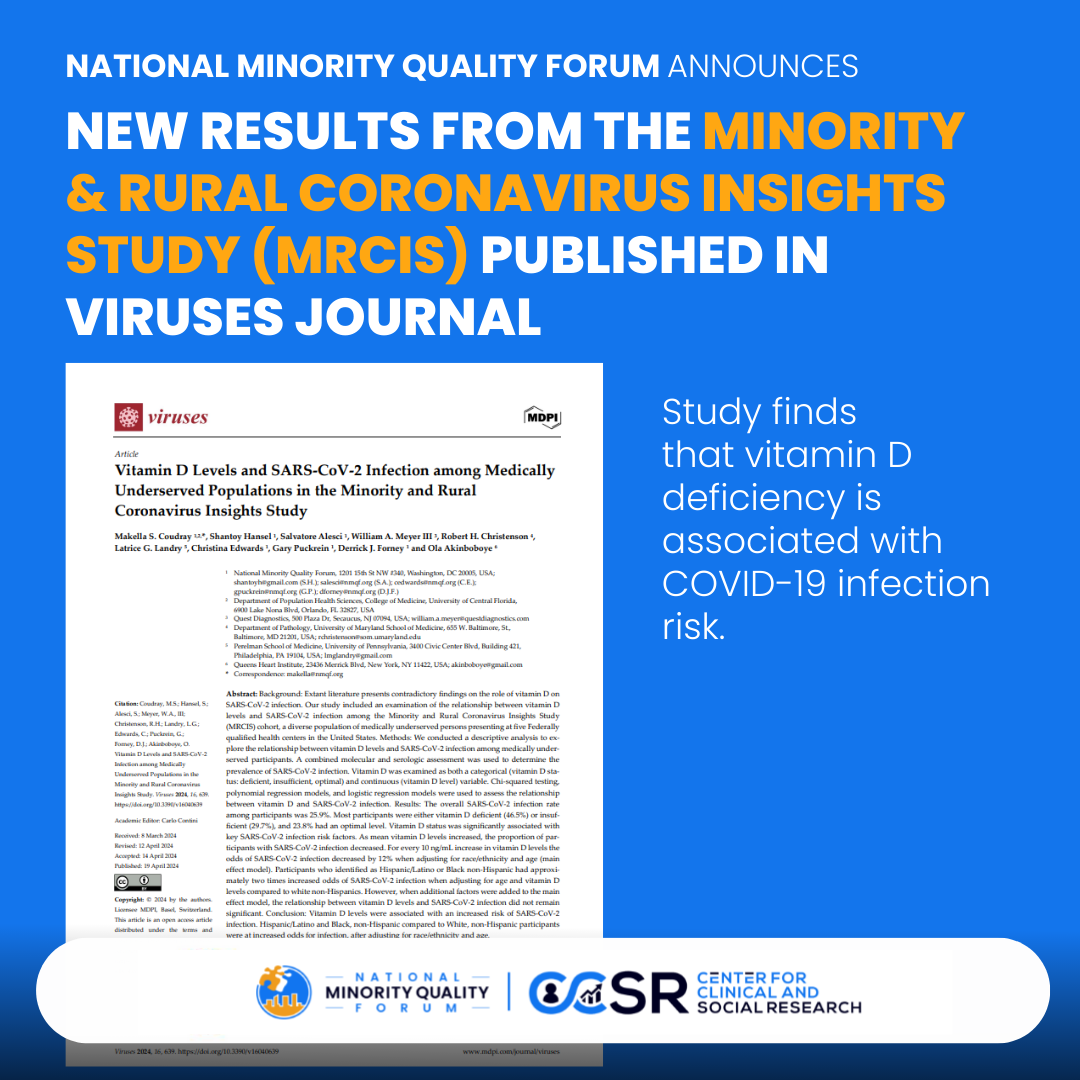
May 09, 2024
By Akeia Blue
Linking Vitamin D and COVID-19 risk: New Insights from the National Minority Quality Forum
Read More

(Photo by Raphael Goetter, licensed under the Creative Commons Attribution 2.0 Generic license.)
20 March 2019
By Gary A. Puckrein, PhD
My introduction to this blog series last week prompted a few readers to ask what I mean by human sustainability. The fact of the question is an indicator of the unfamiliar. My answer expands their question to include: In what context is human sustainability achievable? Besides giving my answers to these questions, I hope to give discussions about sustainability a commonplace in our public discourse.
We are heirs to a tradition of accepting the human predicament: Immortality in our corporeal form is not possible. Said more bluntly: We all must die; there are no exceptions, no one percent exclusion. Many people believe that everlasting life is possible in some disembodied state. Regardless of our beliefs about our predicament, experience teaches that some environments are more supportive of human life. Conversely, certain environments are more risky or challenging for human life. Safety and economic concerns have prompted us to quantify some of the environmental risk.
There is a growing body of literature that focuses on social determinants of health. These studies seek to measure the health risks of such social factors as inadequate housing, food challenges, polluted air or drinking water, unsafe streets, and poor access to medical care. Far fewer studies focus on managing the objective reality to sustain human life and extend it beyond current actuarial expectations.
Environmental change and motion are constant, and it is not likely that we can freeze material realities to accommodate human existence. Accepting change as a constant, I postulate the existence of an equilibrium of conditions within whose boundaries human life has no predictable limit. While this equilibrium is maintained, sustained wellness is achievable and death is delayed. I am also suggesting that this equilibrium is quantifiable and that by quantifying it, we can know it and one day achieve it.
The philosopher Karl Popper asserted that because we can never prove something correct, we must always leave open the possibility that long-held knowledge or beliefs may one day be proven false. I am postulating an equilibrium where human life expectancy has no predictable limit. It is in this context that I speak of human sustainability. The idea embraces the building of and the movement towards the equilibrium.
I invite readers of this blog to falsify the postulate. Prove me wrong.
Enjoy This Post? Read More Articles Below